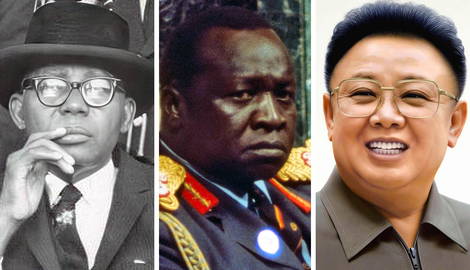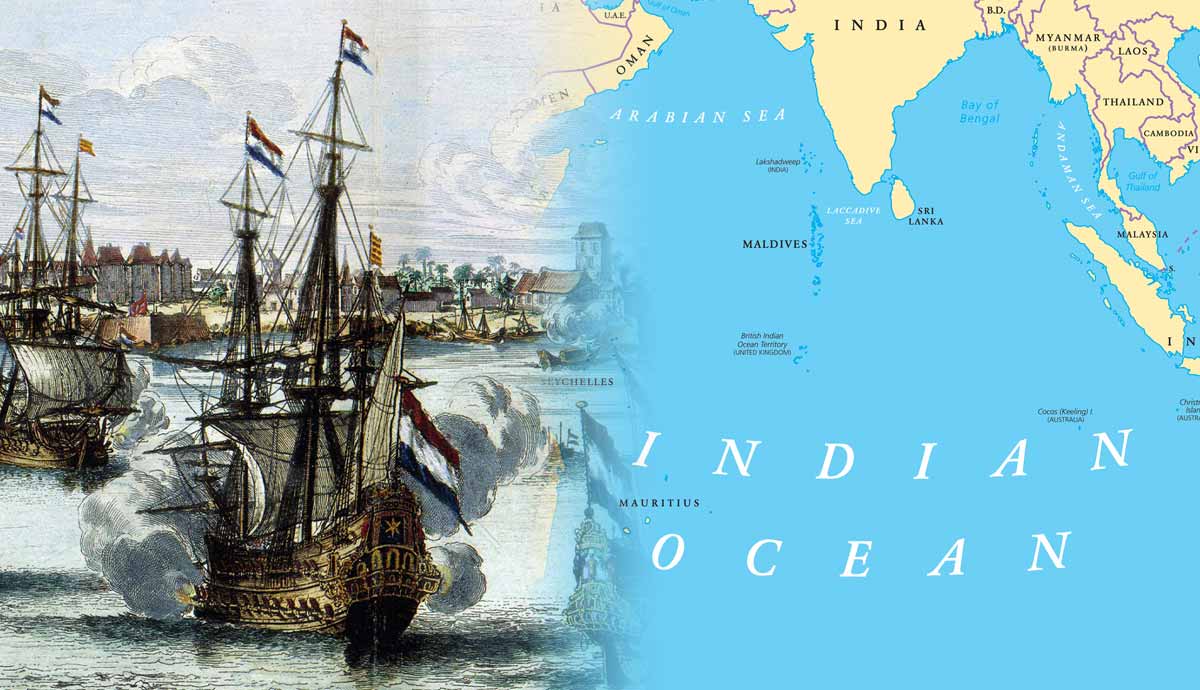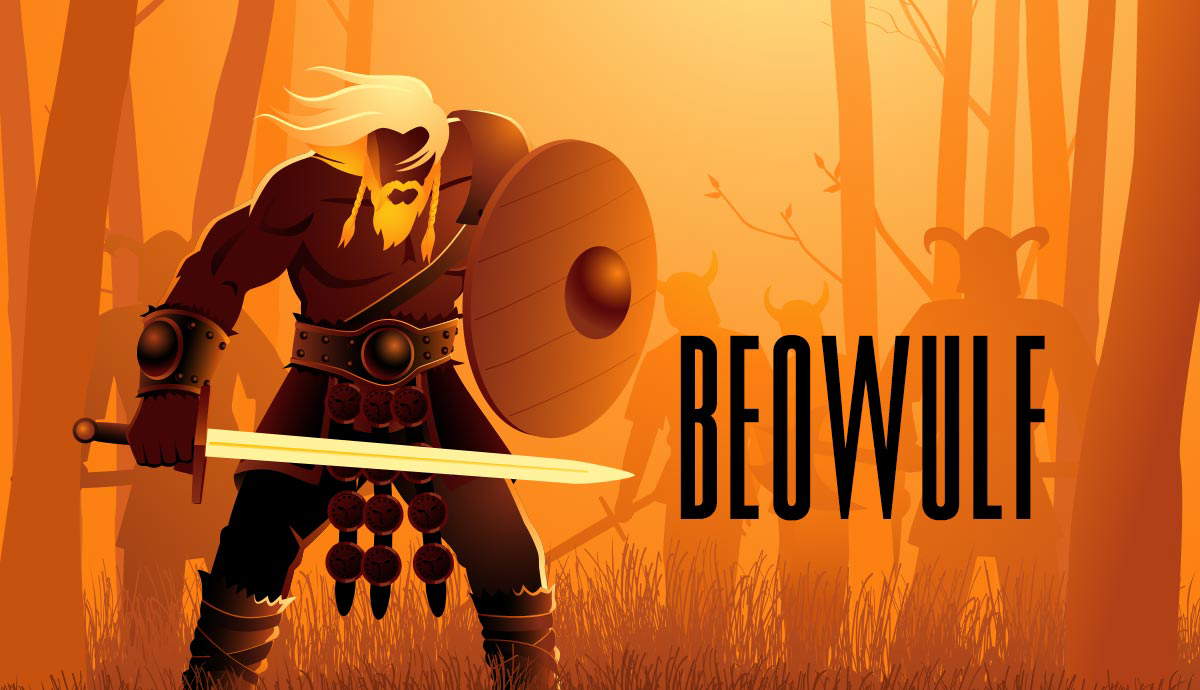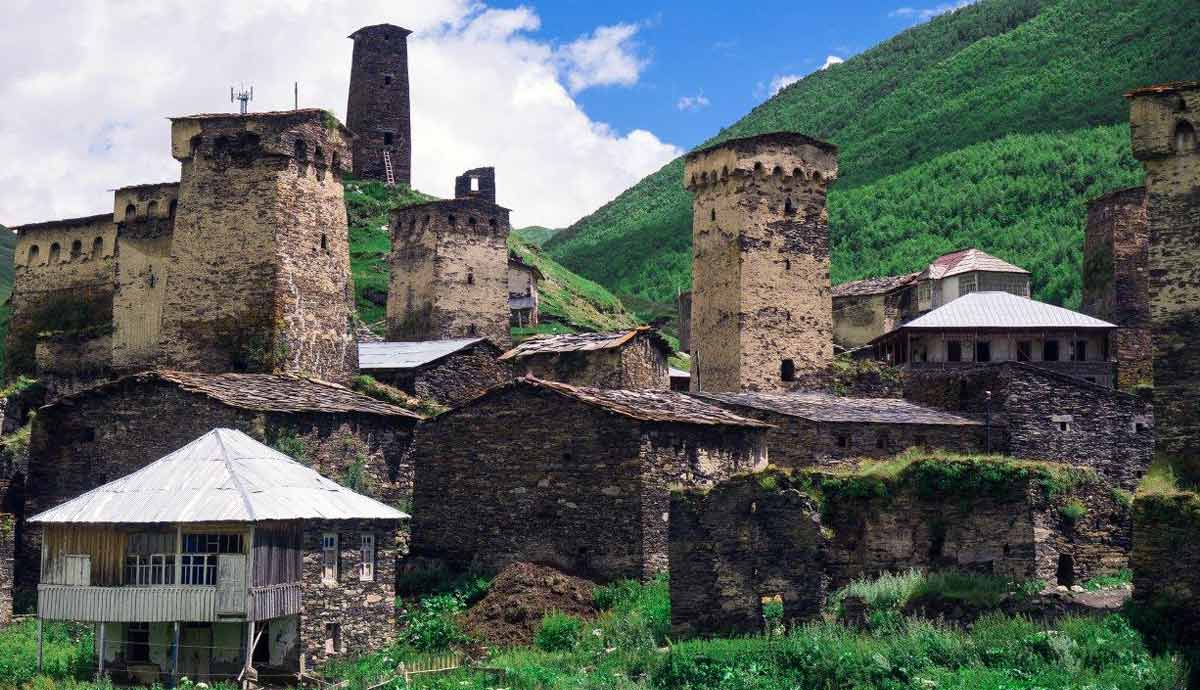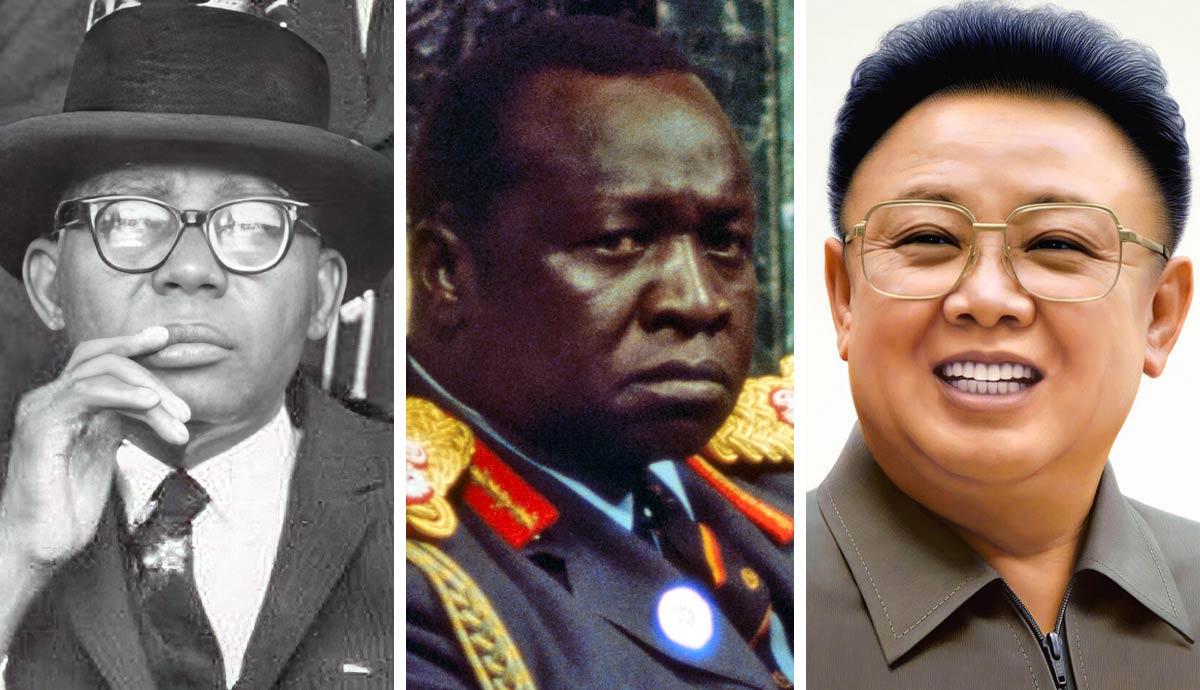
The history of famous dictators is filled with bizarre claims and personal myths. From Idi Amin and Kim Jong Il to Vladimir Putin, Yahya Jammeh, and Papa Doc Duvalier, famous dictators have used the power of propaganda to solidify their power and authority. Some have portrayed themselves as mythical, divine, or invincible, while others have posed as cultural pioneers, miracle healers, and champions of nature. Though their claims and actions were patently absurd, in each instance, they played a crucial role in manipulating public perception and maintaining political control. Beneath the spectacle, more often than not, such claims served to conceal the grim reality of political repression and human suffering of those subjected to their rule.
1. Idi Amin: The Last King of Scotland

Idi Amin Dada was born in Kampala, Uganda Protectorate, in 1928. He reportedly worked odd jobs, as a goat farmer and hotel doorman, before enlisting in the King’s African Rifles (KAR)—the British Colonial Army in East Africa. Initially serving as a cook, he transferred to the infantry and rose to the rank of warrant officer.
After Uganda gained independence in 1962, Amin remained in the Army and continued his rapid ascent until he became commander of the armed forces in 1970. In 1971, fearing arrest for embezzling military funds, Amin staged a coup against Ugandan President Milton Obote. One week later, he declared himself President of Uganda.
As president, he bestowed upon himself the official title: “His Excellency, President for Life, Field Marshal Al Hadji Doctor Idi Amin Dada, VC, DSO, MC, Lord of All the Beasts of the Earth and Fishes of the Sea, and Conqueror of the British Empire in Africa in General and Uganda in Particular.”
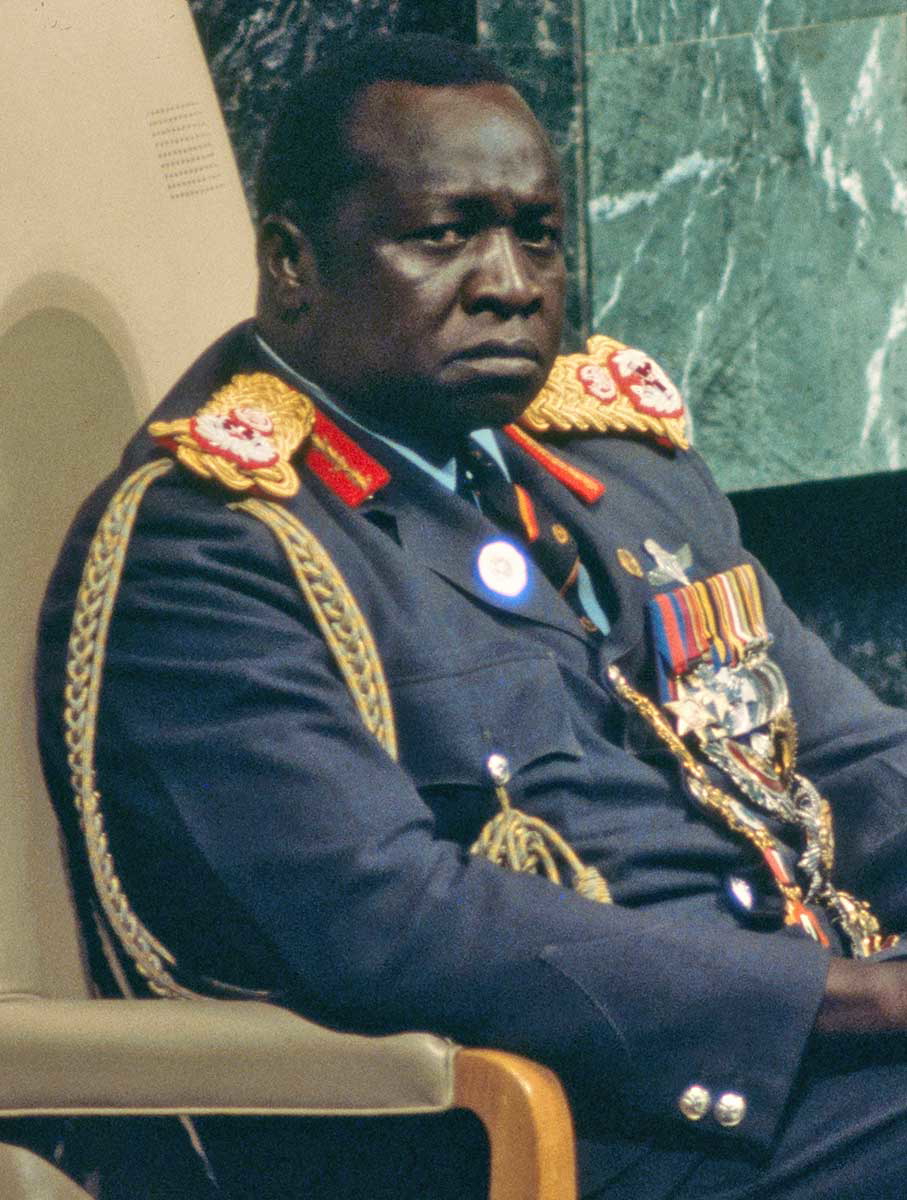
A physical colossus standing 6 ft 4 inches tall, Amin was a former Ugandan light heavyweight boxing champion (1951-1960). He was charismatic and highly entertaining but also deeply paranoid, impulsive, unpredictable, and utterly ruthless. His presidency was marked by extreme repression, economic mismanagement, and mass killings. An estimated 300,000 to 500,000 people were murdered and, in 1972, over 50,000 Asians were expelled—practically overnight—crippling the Ugandan economy in the process.
Amin’s delusions of grandeur were impressive. Among his many bizarre claims—such as controlling the weather and winning fictional military victories—his most infamous was his declaration that he was the uncrowned “King of Scotland.”
Obsessed with imperial power and the British monarchy, Amin admired the military traditions of the KAR and styled himself after colonial officers long after Uganda’s independence. However, his relationship with Britain quickly soured after he declared himself president. When Britain cut diplomatic ties, Amin retaliated with trademark eccentricity by proclaiming himself the rightful ruler of Scotland.
2. Kim Jong Il: Invented the Hamburger
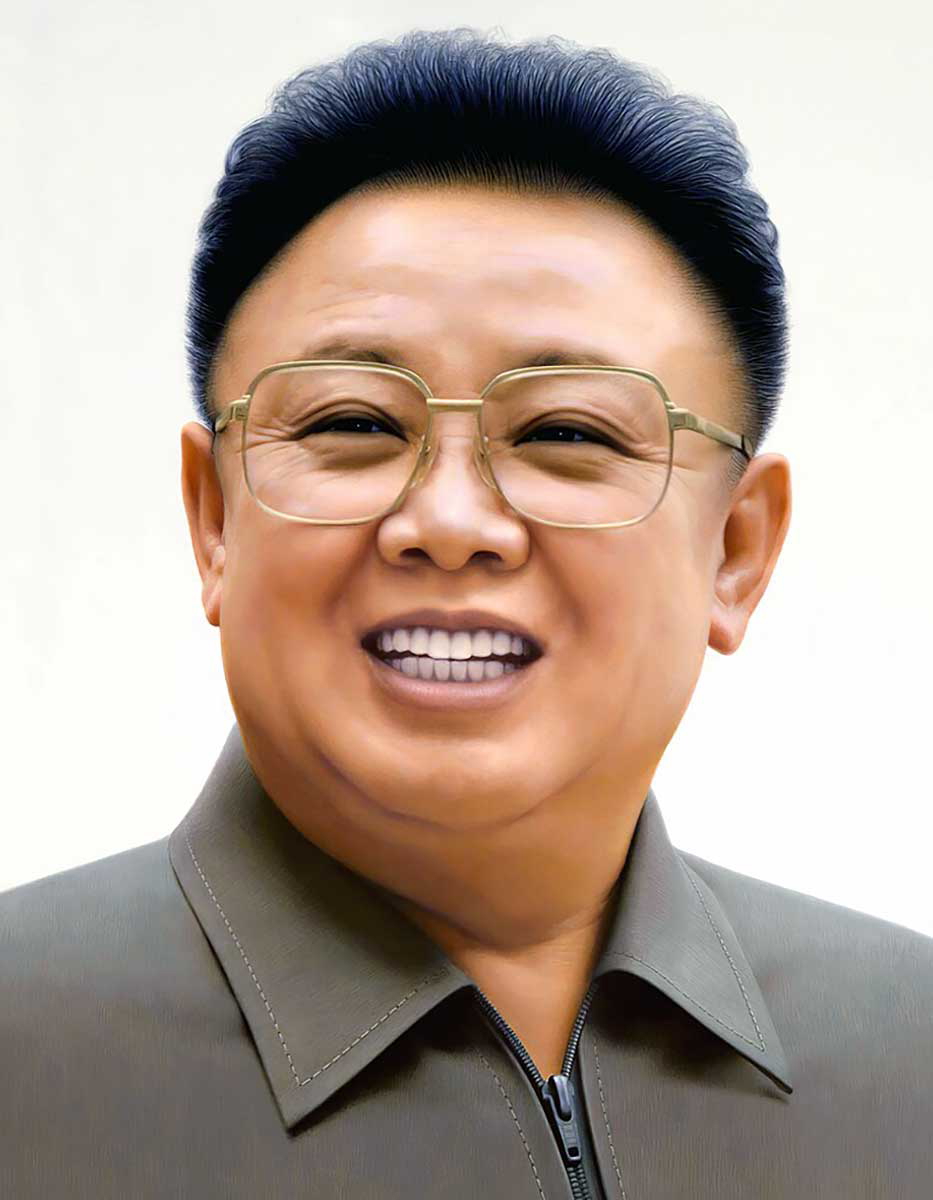
According to state propaganda, Kim Jong Il was born in 1942 in a log cabin on Mount Paekdu, North Korea’s most sacred mountain. His birth was marked by a shining star in the sky, followed by a super bright rainbow. Soviet records tell a different story: “Yuri Irsenovich Kim” was born in 1941 in Vyatskoye, a small fishing village in Siberia.
Kim rose to power in 1994 after the death of his father, Kim Il Sung, founder, supreme leader, and “eternal president” of North Korea. He inherited the Democratic People’s Republic of Korea (DPRK) in a time of deep economic crisis, exacerbated by the collapse of the USSR in 1991. His rule (1994-2011) was characterized by extreme repression and a ruthless, totalitarian style.
For 17 years, Kim ruled the secretive DPRK, prioritizing the military and covertly advancing its nuclear weapons program. His regime was widely regarded as one of the most oppressive in the world, responsible for severe human rights abuses and crimes against humanity.
Despite his reputation and deeds, Kim was a reclusive figure. Yet, like his father, he lived at the center of an elaborate cult of personality that glorified his alleged personal talents and achievements. A devoted fan of American cinema, he amassed a collection of over 20,000 DVDs and tapes, was an avid basketball fan, and had a penchant for staging musicals.
Among his many dubious contributions, in 2000, Kim claimed to “invent” the Gogigyeopbbang (“Double Breaded Meat”). The meal was introduced as a national dish, despite its uncanny resemblance to an American hamburger. Initial fanfare and the best efforts of the regime aside (a dedicated factory was even built for its production), the dish ultimately failed to become a widespread staple of North Korean cuisine.
3. Yahya Jammeh: Miracle Healer
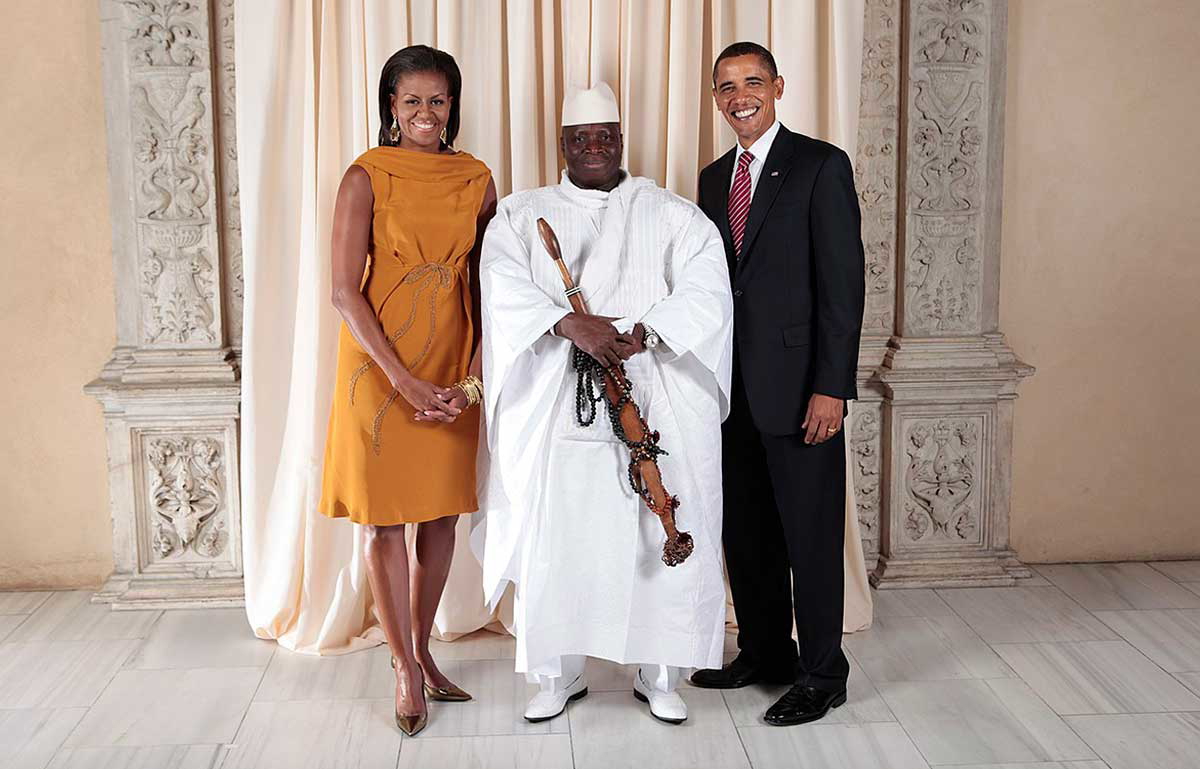
Yahya Abdul-Aziz Jemus Junkung Jammeh was born in Kanilai on the western coast of the Gambia in 1965. He served in the Gambian National Gendarmerie (1984-1989) before being commissioned as an officer in the Gambian National Army, as commander of the Military Police (1992-1994). He led a coup d’etat against the government of Sir Dawda Jawara in 1994, and ruled by decree for two years, before being elected president in 1996.
All in all, Yahya Jammeh ruled unopposed over the Gambia for 22 years with an iron fist. He has been accused of many crimes, from widespread arbitrary detentions to extrajudicial killings and forced disappearances.
However, things got truly bizarre in January 2007 when he claimed that he had received a “mandate from god” to create a herbal cure for HIV and AIDS from seven herbs found in the Qur’an. He created the Presidential Alternative Treatment Program (PATP) to distribute his fraudulent “cure.”
Jammeh routinely performed public “healing” sessions, which were broadcast on state media and represented as fact. He made his patients strip naked and lie down before uttering words of prayer and massaging their bodies with a mysterious green paste. Then, twice per day, patients drank his herbal PATP cure. Jammeh refused to say what was in it but did disclose that the cure only worked on Mondays and Thursdays.
Despite having no medical training, and his cure being condemned by the international health community as ineffective and “dishonest,” President Jammeh’s program operated in the Gambia between 2007 and 2016, when he was finally voted out of power and fled the country.
4. Vladimir Putin: Taught Birds How to Fly

Vladimir Putin was born in 1952 in the Soviet city of Leningrad. In 1975, he joined the KGB (Soviet intelligence services). He was posted to Dresden, East Germany in 1985 before returning to Leningrad in 1990, just before the Soviet Union collapsed. He became active in politics under his mentor, Anatoly Sobchak, who became the first elected mayor of St. Petersburg in 1991.
His political assent was swift. By 1998, he had risen to become head of the FSB, the successor to the KGB. Emerging from near-obscurity, his rise was meteoric: appointed prime minister by Boris Yeltsin in 1999, he became president of the Russian Federation in 2000. He has remained in power ever since.
Despite his decades in power, much of Putin’s life is shrouded in secrecy. His ex-wife, Lyudmila Putina (1983-2013), largely stayed out of the public eye. Little is known about his private affairs, save that he allegedly retains close ties with former KGB colleagues. While several accounts of his life exist in English, the only major Russian language publication is his autobiography, Ot pervogo litsa (First Person), which appeared in 2000.
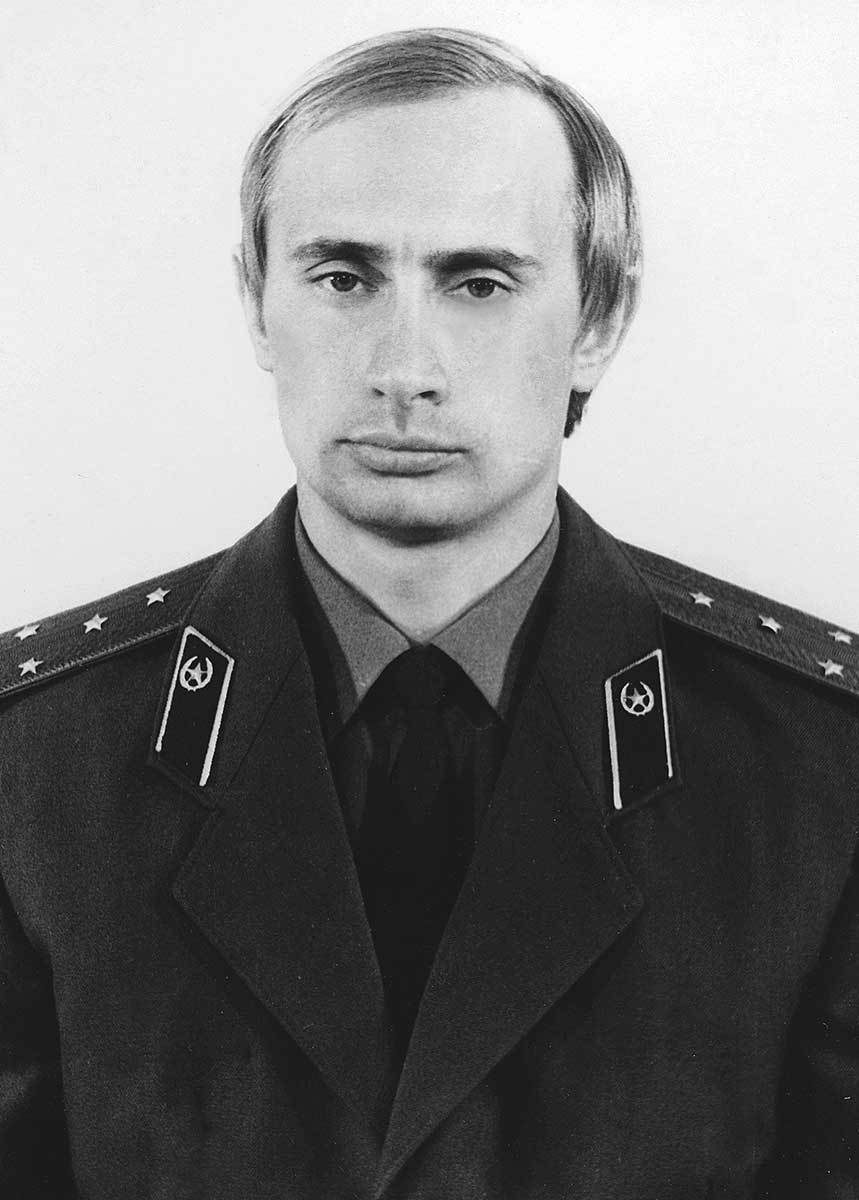
A highly secretive, paranoid, and intensely image-conscious man, Putin has carefully shaped his public persona, above all crafting the image of a strongman at the helm of Mother Russia. He is frequently photographed engaging in rugged, “manly” pursuits—riding horses, fishing, and hunting (usually shirtless). He holds a black belt in Judo, which he has practiced since childhood, and in later life, has been known to score impressive (staged) goals in ice hockey exhibition matches (Hill & Gaddy, 2015).
Yet, his public image also includes a softer side. Putin has been pictured swimming with dolphins and cuddling puppies. One of his most bizarre nature-based stunts came in 2012 when he donned a white jumpsuit and black goggles to assist captive-bred Siberian white cranes on their migration route to India. Almost driven to extinction by hunters, Putin took to the skies in a motorized hang glider to guide the young cranes on their way. Out of the six involved in the experiment, only a few followed his lead—Putin blamed “strong winds.”
5. Papa Doc Duvalier: an “Immaterial Being”
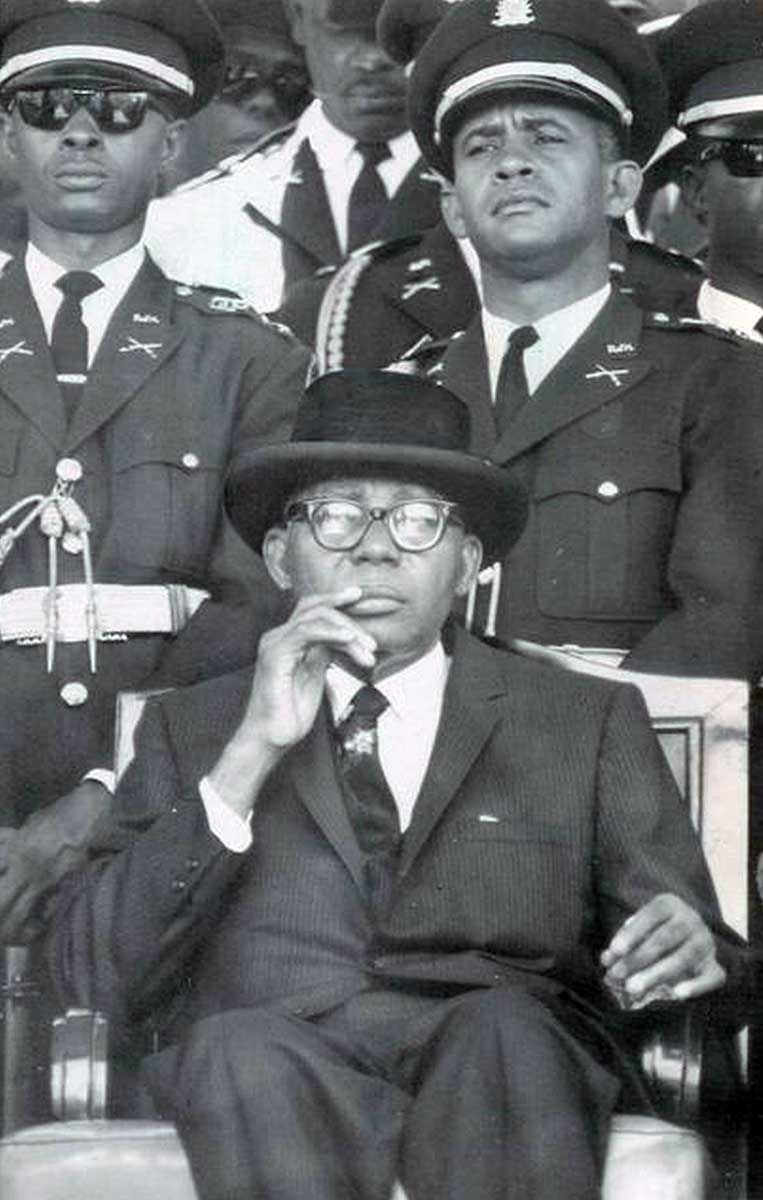
François “Papa Doc” Duvalier was born in Port-au-Prince, Haiti, in 1907. As a young man, he was deeply influenced by the violence and racism of the US occupation of Haiti (1915-1934) and the surge of Black nationalism that it inspired. He pursued a medical degree at the University of Haiti (1934), later studying Public Health in the United States. Upon returning to Haiti, he participated in campaigns to eradicate tropical diseases across the country.
Duvalier’s political ascent began in 1946 when he was appointed director general of the National Public Health Service. A decade later, he launched his bid for the presidency. In 1957, he decisively defeated Louis Déjoie, a wealthy sugar planter of French descent, in a landslide victory.
An astute politician, Duvalier sought to dismantle the power of Haiti’s “mulatto” elite—the mixed-race ruling class—and elevate the poor black majority, who had long been excluded from political life. Recognizing the deep cultural and spiritual significance of Vodou and the influence of its various forms over the Haitian population, he integrated its symbolism into his persona. Haitian Vodou, historically intertwined with anti-colonialism and black Haitian nationalism, became a crucial tool in his consolidation of power.
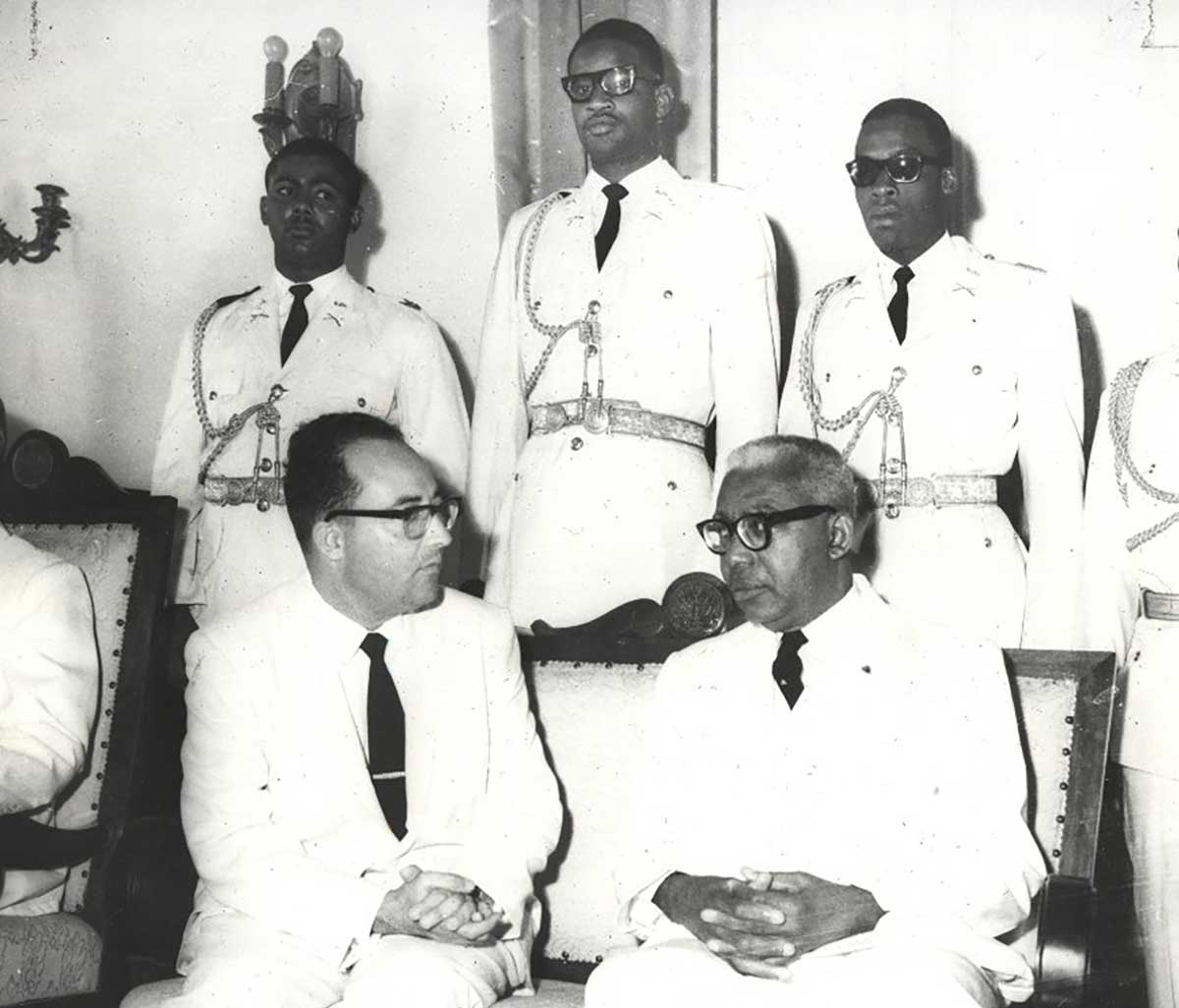
Accordingly, Duvalier modeled his cult of personality on Baron Samedi, the powerful Vodou spirit (Lwa) of the dead. Shortly after his election, he declared himself to be an “immaterial being.” Deliberately styling himself in the black suit, straight black tie, and bowler hat, Papa Doc even deepened his voice to match the nasal tone of Baron Samedi.
Baron Samedi, the tuxedo-clad living corpse, is both the guardian of the dead and healer of the living, possessing the power to decide who lives and who dies—an image that suited Duvalier’s politics down to the ground. By merging Vodou mysticism with ruthless authoritarian rule, he created an aura of fear and divine authority that helped him maintain an iron grip over Haiti for the duration of his presidency.
From 1957 until he died in 1971, Duvalier operated as one of the most brutal dictators in the country’s history. In 1964, he declared himself “president for life.” His paramilitary force, the Tonton Macoute, carried out kidnappings, torture, and mass executions, silencing opposition and terrorizing the population. Under Duvalier’s rule, tens of thousands were killed, and Haiti was plunged into a reign of fear and terror that would shape the history of the island for decades to come.
